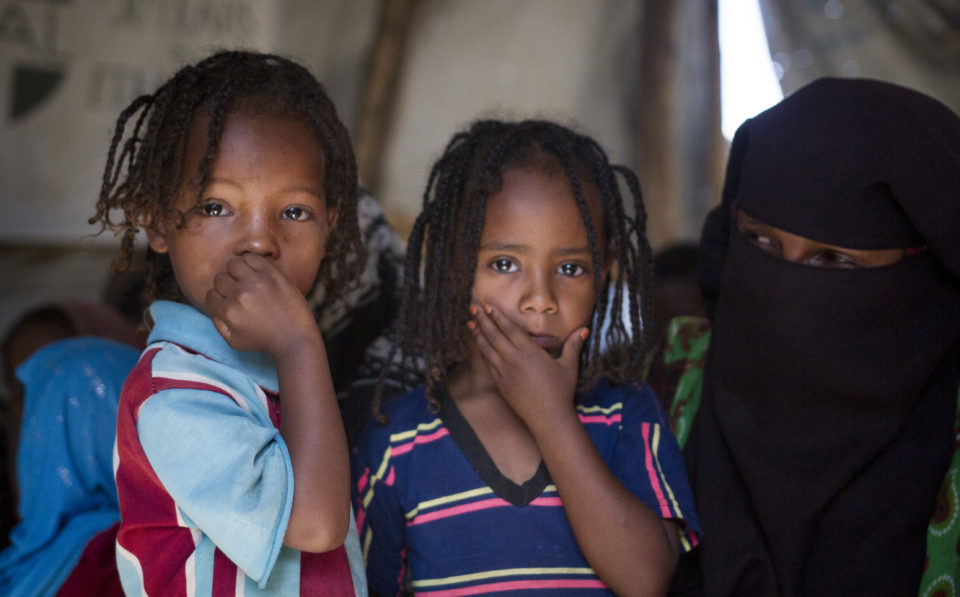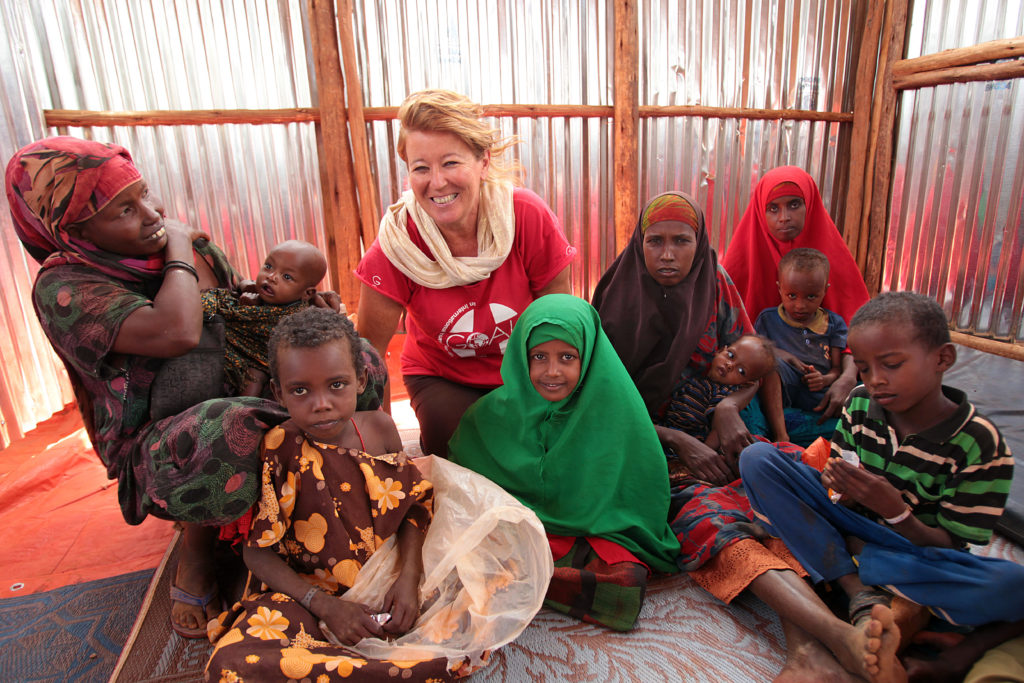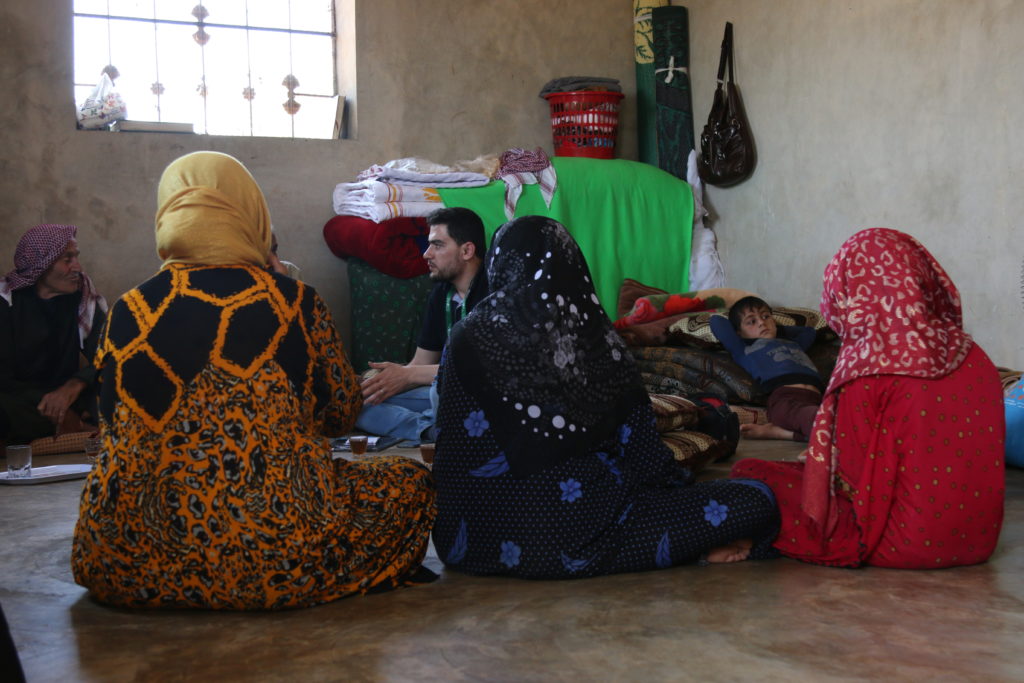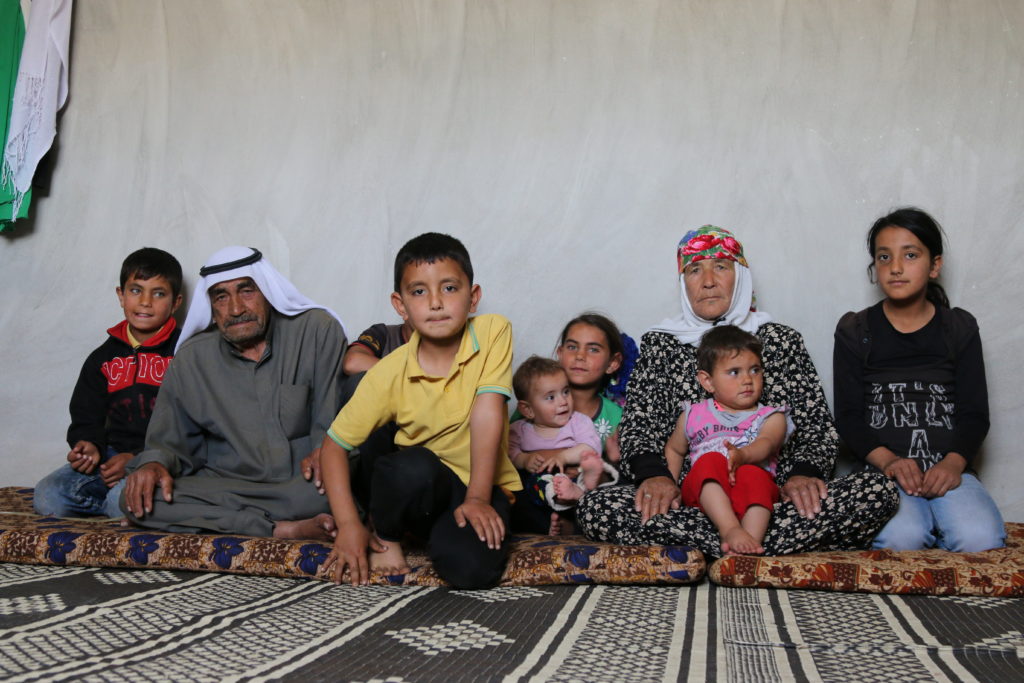 Stories
Stories
June 20, 2019 • 6 min read
In 2018 there were 70.8 million forcibly displaced people worldwide!

World Refugee Day – A story from Mary T Murphy. Refugee Manager in Ethiopia
Sadly World Refugee Day is marked by new figures which show the number of people all over the globe fleeing war, persecution and conflict exceeded 70 million at the end of last year, the highest level ever recorded by the UN Refugee Agency. This year the focus of World Refugee Day is Africa and finding solutions to forced displacement on the continent. Having worked in Ethiopia with GOAL supporting refugees for eight years, my wish is that this date serves to somehow spark action to tackle this unacceptable humanitarian crisis.
According to new figures from the UN at the end of 2018 there were 70.8 million forcibly displaced people worldwide. 41.3 million were internally displaced. 25.9 million were refugees. Every second refugee was a child, many alone and without their families. Almost two thirds were from South Sudan, Afghanistan and Syria. Refugees and displaced communities do not choose to leave their homes and homelands. Invariably they are fleeing persecution, conflict, war, and natural disaster. They are forced from their homes due to circumstances outside of their control.
“Every second refugee in 2018 was a child”
GOAL has been working in Ethiopia since the early 1980s, when we initially responded to a famine that ultimately claimed the lives of nearly one million people. Today we operate a countrywide humanitarian and development programme, focusing on alleviating poverty and responding to sudden and protracted humanitarian crises affecting the most vulnerable communities and groups.
Since August 2011, I have been working with GOAL’s Refugee Program in Ethiopia, initially supporting Somali refugees in Buramino refugee camp in Dollo Ado in the South East of the country. Today, with funding from Irish Aid, the European Commission’s Humanitarian Office (ECHO), the US State Department (BPRM), UNHCR, UNICEF, and the World Food Programme, GOAL Ethiopia is supporting more than 100,000 across four refugee camps – two in Gambella in the South West, and two in Afar Region in the North East. The picture is bleak. All the camps are situated in marginalised, remote, underdeveloped locations. The refugees are completely dependent on aid, and there are very few livelihood opportunities. They lack proper shelter, clean water, fresh food, health support, and fuel for cooking.Children in a Refugee Camp in Berhale
The biggest issue facing refugees is malnutrition with 5.9 million children and women are expected to require life-saving treatment for acute malnutrition in 2019.
Figures show that anaemia among children and women of reproductive age is a serious problem. In one of our refugee camps, Kule, the anaemia rate is 40.8% in children aged between six months and five years camp. This is considered a public health emergency.
To support nutrition needs GOAL is providing supplementary feeding for moderately malnourished children under five, and pregnant and lactating women. We are particularly proud of our C-MAMI programme, (Community Management of At-Risk Mothers and Infants) which is run in Gambella refugee camp, and which attempts to identify and support infants at risk of acute malnutrition within the first six months of life.
Our C-MAMI programme in Gambella has had lots of success stories. But the need is so huge.
Looking ahead we are supporting the Government of Ethiopia’s nine pledges relating to improved rights and service delivery for refugees. We are working towards adopting a community approach and investing in capacities to build and sustain solutions locally. But the problem of refugees and displaced people needs to be managed. Unless the root causes behind people fleeing their homelands are addressed, the numbers will continue to grow. As long as refugees and the displaced are treated as a stand-alone problem, there will be no solution. A greater global effort is needed to minimise the chances of natural disasters by the implementation of tougher climate change policies; by working harder to bring wars to an end, and by tackling religious, ethnic and tribal divides. There will be no end to the millions of innocent people fleeing for their lives until this happens.
Wouldn’t it be wonderful if the world woke up to these issues, and that there would be no more need for a World Refugee Day.
That is my hope.
Mary T Murphy – Refugee Programme Manager, GOAL Ethiopia, and recipient of The Presidential Distinguished Service Award for service to Ireland abroad in 2017.Mary T Murphy in a refugee camp, Ethiopia
A Migrant’s Story in Syria
Om Khaled and her extended family are from the small village of Kafer Sajna in the countryside to the south of Idlib city in war-torn Syria. They were forced to abandon their home to escape the recent renewed bombing offensive on the villages north of Hama city and south Idlib province. “In the second week of the month of Ramadan, we left our village carrying nothing with us other than the clothes we wore. Our homes were destroyed and our crops burned – we have nothing left there,” confirms Om.
Walking for days in the punishing summer heat the family, which includes her elderly husband, mother, widowed sister and five children, eventually found refuge in a village further north. Om continues, “We found an old stable, and although it was not fit for human habitation, we cleaned it to stay in it because we did not have any other choice”.
Breaking her arm while slipping in the process of cleaning the old stable, OM recalled:
“That first evening the children started to cry of hunger. I provided them with some bread and tea that neighbours kindly gave us. The adults however could only drink 1 or 2 cups of water and eat nothing. We lived very hard days; I spent whole nights crying. Every one of us got sick at some point because of moisture and improper health conditions.”
Om and her family have since located further north again to a village about 20 kilometres from the Turkish border. They have been provided with a single room for their sleeping, cooking and bathing needs; a relative reprieve from the conditions they have left. Their future, however, will almost certainly involve more upheaval and more uprooting as the bombardment moves further north. “Will we return home or not? We do not know. What is our next destination? What will happen to us? We do not know. We are so tired. Our situation is so miserable,” laments Om. For her and her family, as well as the millions more in the same predicament, uncertainty is the only certainty they face. In an era when the mass movement of people defines and affects so much of our politics, it is fitting that we consider the plight faced by 70 million people on this World Refugee Day. Day after day, swathes of migrants from Syria to Venezuela, from the Sahel to Myanmar, embark on the perilous journey to somewhere, anywhere safer. Imagine yourself in their predicament; Imagine dropping everything at a moment’s notice; Imagine abandoning your community and everyone you knew; Imagine walking hours, days, even weeks on end; Imagine your children and grandparents going hungry; Imagine everything that must be replaced; Imagine no future beyond daily subsistence; Imagine lives perpetually on hold.For the many, many refugees that we encounter, this is their reality.
We ask that on this day of all days, you take a moment to consider Om’s story; a story which could be retold by many millions across the world.”People from South Sudan, Afghanistan and Syria make up two-thirds of the world’s refugees”
The holy month of Ramadan is usually a joyful time for families, however in Syria, some families spent the recent celebration in fear, with some facing bombardment and terror.
Here is the story of Maha Al-hamad on #WorldRefugeeDay. A poignant reminder that today and everyday, we must #StepWithRefugees.



